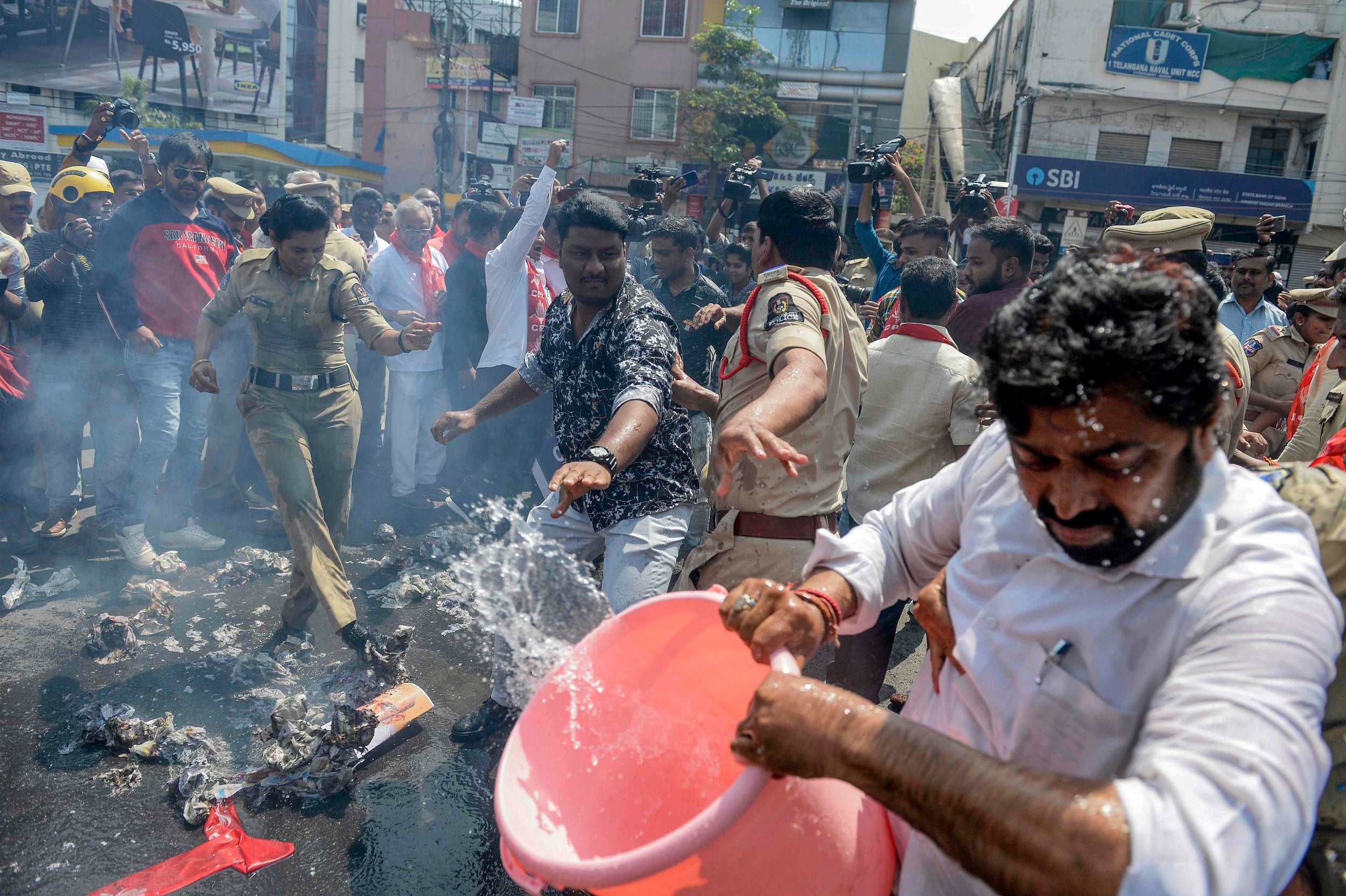UN human rights chief launches unprecedented legal action against Indian government over citizenship protests
Proceedings in Indian parliament stalled for second day on Tuesday as opposition demands debate on Delhi riots

Your support helps us to tell the story
From reproductive rights to climate change to Big Tech, The Independent is on the ground when the story is developing. Whether it's investigating the financials of Elon Musk's pro-Trump PAC or producing our latest documentary, 'The A Word', which shines a light on the American women fighting for reproductive rights, we know how important it is to parse out the facts from the messaging.
At such a critical moment in US history, we need reporters on the ground. Your donation allows us to keep sending journalists to speak to both sides of the story.
The Independent is trusted by Americans across the entire political spectrum. And unlike many other quality news outlets, we choose not to lock Americans out of our reporting and analysis with paywalls. We believe quality journalism should be available to everyone, paid for by those who can afford it.
Your support makes all the difference.The UN’s human rights chief has applied to petition India’s supreme court against the Modi administration’s new citizenship laws that critics say discriminate against Muslims, in what is being described as an unprecedented move.
It comes as opposition MPs stalled proceedings in India’s parliament for a second day on Tuesday, demanding an urgent debate on the bloodshed in Delhi last week that saw at least 46 people killed and more than 400 injured.
UN high commissioner for human rights Michelle Bachelet has informed India of her decision to file a brief as an amicus curiae, or third-party “friend of the court”, over the Citizenship Amendment Act (CAA). The court has already received more than 140 petitions questioning the constitutional validity of the new law.
Ms Bachelet has previously expressed concerns about the CAA and the violent police crackdown on protesters against the law, which had already claimed lives in Uttar Pradesh state and elsewhere. The mostly anti-Muslim riots in Delhi last week began with clashes between those protesting and counter-protesting over the law.
Ms Bachelet said she was concerned by reports of “police inaction in the face of attacks against Muslims by other groups”. And last month, during her regular update to the UN human rights council, she said the CAA was “of great concern”, adding that “Indians in huge numbers, and from all communities, have expressed – in a mostly peaceful manner – their opposition to the Act, and support for the country’s long tradition of secularism”.
The Modi government is facing mounting calls for home minister Amit Shah’s resignation in the wake of the violence, with police accused of standing by, or in some cases, urging on mobs as mosques and Muslim properties were destroyed. Mr Shah is responsible for policing in the capital.
Yet despite last week’s riots being the deadliest in Delhi since 1984, the government’s top leadership have offered precious little in the way of public comment. Mr Shah did not mention Delhi directly when addressing a rally for the ruling BJP party in West Bengal on Sunday, and Mr Modi has only tweeted, in English, calling for “peace and brotherhood”.
The government has, however, been swift and vociferous in its condemnation of any members of the international community raising concerns over the breakdown in law and order, and particularly the police’s failure to protect Muslims.
Raveesh Kumar, the Indian foreign ministry’s spokesperson, said India’s mission to Geneva was informed of Ms Bachelet’s application to the supreme court on Monday.
He said the CAA was “an internal matter of India and concerns the sovereign right of the Indian Parliament to make laws”. “We strongly believe that no foreign party has any locus standi on issues pertaining to India’s sovereignty,” he said.
Earlier on Tuesday, India summoned the Iranian ambassador after Tehran’s foreign minister, Javad Zarif, tweeted that his country “condemns the wave of organised violence against Indian Muslims”.
Iran became the fourth Muslim-majority nation to speak out over the Delhi riots, after Pakistan, Turkey and Indonesia raised their concerns.
The US president Donald Trump failed to do so, despite the fact they were unfolding just across the city from his high-level trade talks with Indian officials. He later told a press conference that handling the riots was “up to India”.
And the UK government also toed a careful line in its response to the riots on Tuesday, during an urgent question raised in parliament by the opposition.
Labour accused India of behaving “like a state with no regard for human rights and the rule of law or the freedom of religion”, adding that it must “face the consequences of its behaviour”.
Shadow foreign office minister Khalid Mahmood described the CAA as “enabling documented migrants from neighbouring countries to seek Indian citizenship provided they meet one condition – they’re not Muslim”. “This is the first such law that has been passed in India since its independence,” he said.
Representing Johnson’s government, the foreign office minister Nigel Adams said the UK was “monitoring closely” developments in India, saying that “the events in Delhi last week were very concerning and the situation is still tense”.
But he failed to specifically criticise the Indian authorities, saying: “The death of one protester is one too many. We urge restraint from all parties and trust the Indian government will address concerns of people of all religions in India.”
Join our commenting forum
Join thought-provoking conversations, follow other Independent readers and see their replies
Comments